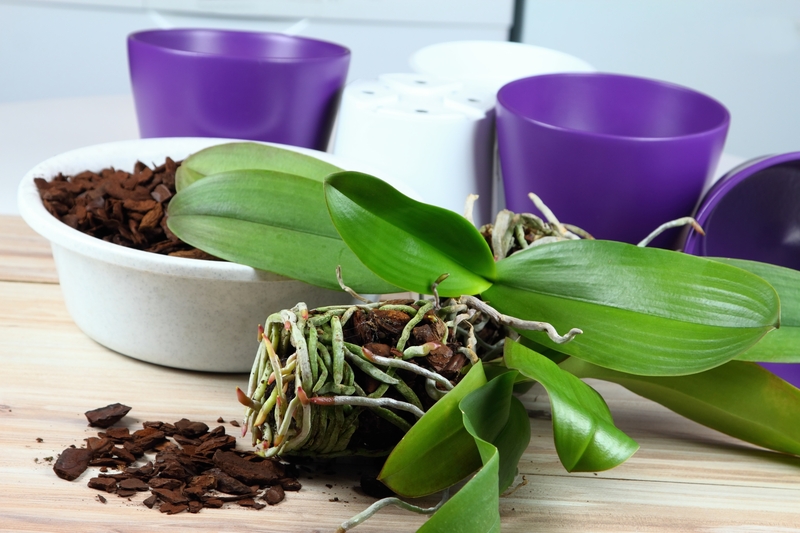Turning Leftovers into Earth's Gold
Posted on 17/06/2025
Turning Leftovers into Earth's Gold: Unlocking the Hidden Value of Food Waste
Every year, millions of tons of food end up as waste. But what if we told you these leftovers could become Earth's treasures? Welcome to the revolution of turning leftovers into Earth's gold - a sustainable movement that transforms scraps into invaluable resources for the planet and its people.
Why Do Leftovers Matter?
It's easy to overlook the single potato peels or spoiled fruits disposed of each day. However, food waste is more than a household inconvenience; it's a significant global issue. According to the Food and Agriculture Organization (FAO), roughly one-third of food produced for human consumption is lost or wasted every year. That's about 1.3 billion tons worldwide!
- Environmental Impact: Leftover food contributes to methane emissions in landfills, a potent greenhouse gas that accelerates climate change.
- Economic Loss: Food waste costs billions annually, from production to disposal, straining economies everywhere.
- Social Inequality: While food is thrown away, millions face chronic hunger, revealing a stark paradox in resource distribution.

The Alchemy of Sustainable Living: Transforming Leftover Food into Earth's Gold
But there's good news. Turning leftovers into Earth's gold is more accessible than ever. By adopting innovative methods, households, businesses, and communities can convert food scraps into valuable resources such as compost, bioenergy, and animal feed. Let's explore how this transformation happens and how you can play a role in this eco-friendly process.
The Science of Composting: Nature's Gold-Making Machine
-
What is Composting?
Composting is the natural process of breaking down organic materials - like vegetable peels, coffee grounds, and eggshells - into a nutrient-rich soil amendment called compost. This 'black gold' replenishes soil fertility and promotes healthy plant growth. -
How Does It Work?
Microorganisms such as bacteria and fungi decompose the organic matter. The process generates heat, destroys pathogens, and results in a dark, crumbly substance packed with nutrients. -
Getting Started at Home:
- Choose a composting method: traditional pile, tumblers, or vermicomposting (with worms).
- Collect acceptable scraps: fruit and veggie trimmings, coffee filters, tea bags, and eggshells.
- Layer greens (nitrogen sources) and browns (carbon sources) for optimal breakdown.
- Keep moist but not wet, and aerate regularly to speed up decomposition.
- In a few months, harvest your earthy gold for gardens and lawns.
By returning food waste to the earth, you not only reduce landfill burden but also create a sustainable cycle of nutrient renewal.
Bioenergy: Powering the Future with Food Scraps
Turning leftovers into Earth's gold goes beyond composting. Modern technology allows us to extract energy from organic waste, providing renewable fuels that benefit both the environment and the economy.
- Anaerobic Digestion: This process uses bacteria to break down food waste in the absence of oxygen, producing biogas (a mixture of methane and carbon dioxide). The gas can be used for heating, electricity, or even powering vehicles.
- Case Study: In many European countries, community-wide anaerobic digesters collect and process food scraps, turning them into both energy and high-quality fertilizer. Some cities even run their buses on fuels made from food waste!
- How You Can Participate: Find local programs or start a biogas unit for your home or neighborhood if regulations allow.
Upcycling Kitchen Leftovers: The Culinary Art of Food Rescue
Not all leftovers need to be composted or converted to energy. With creativity and knowledge, you can transform them into delicious, nutritious meals, minimizing waste and saving money.
Creative Cooking: Zero-Waste Recipes for Today's Kitchen
- Vegetable Stock: Collect onion skins, carrot tops, and herb stems to create flavorful stock at home.
- Revamped Leftovers: Use roasted vegetables in soups, make frittatas from old bread and greens, or blend fruit into smoothies.
- Pickling and Fermentation: Turn excess cucumbers into pickles or leftover cabbage into sauerkraut or kimchi.
- Batch Cooking for the Week: Plan menus around utilizing all ingredients, reducing spoilage and trips to the store.
Home chefs around the world are showing that turning kitchen leftovers into gold is an art form, rewarding innovation and resourcefulness.
From Farm to Table, and Back Again: Community Initiatives
- Food Banks and Donation Programs: Surplus food from farms, stores, and restaurants can feed those in need, creating a win-win by reducing waste and fighting hunger.
- Community Composting: Urban gardens and neighborhoods often pool food scraps to nourish public green spaces.
- Educational Campaigns: Workshops and social media spread awareness on food waste reduction and sustainable consumption.
The Economic and Environmental Benefits of Turning Leftovers into Gold
Repurposing leftovers is not just good for the conscience - it makes financial sense and shields our ecosystem from harm. Here's how:
- Reduces Waste Disposal Costs: Less food in trash means lower municipal expenses in waste management.
- Cuts Greenhouse Emissions: Composting and anaerobic digestion prevent food from rotting in landfills and releasing methane.
- Boosts Local Economies: Community compost sales, biogas energy, and food upcycling ventures create jobs and profits.
- Improves Soil and Food Security: Rich compost enhances food production, while surplus food reaches those who need it.
Innovative Businesses Turning Food Waste into Fortune
Across the globe, forward-thinking businesses are extracting value from food waste - from startups crafting craft beers with surplus bread, to technology firms converting coffee waste into sustainable textiles.
- Black Soldier Fly Farms: Using food scraps to feed insects, which in turn become high-protein animal feed and organic fertilizers.
- Bioplastics: Some companies are manufacturers creating fully compostable packaging from food waste starches and fibers.
- Food Apps: Digital platforms connect restaurants and grocery stores with consumers to offer discounted surplus meals, reducing waste and feeding people affordably.
How You Can Start Turning Leftovers into Earth's Gold
Ready to join the movement? Turning leftovers into gold at home, work, or school is easier than you think. Here are practical steps to help you get started:
1. Plan Smart, Shop Responsibly
- Make a weekly meal plan and only buy what you need.
- Check your pantry before shopping to avoid duplicate purchases.
- Learn to understand expiration dates - "best before" is not "unsafe after."
2. Store Food Correctly
- Know your fridge layout - keep perishables visible, use airtight containers, and label leftovers.
- Freeze extra portions or ingredients before they spoil.
3. Compost at Home or with Community
- Start a compost bin in your backyard or kitchen.
- Join or create a community composting initiative.
4. Get Creative in the Kitchen
- Invent new meals from yesterday's dinners or nearly-wilted produce.
- Follow zero-waste chefs for inspiration.
5. Support Businesses and Programs that Value Food Waste
- Buy from companies that use upcycled ingredients or have transparent sustainability policies.
- Volunteer or donate to food rescue organizations.

The Future of Earth's Gold: A Greener, Cleaner Tomorrow
As society continues to innovate, the practice of transforming leftovers into Earth's treasures will only grow more advanced and more essential. Cities, businesses, and homes are realizing that what was once "waste" is truly a resource.
- Smart Waste Collection: Internet of Things (IoT) connected bins weigh and record food waste, helping cities track and reduce unnecessary disposal.
- Biorefineries: Biological "factories" process food waste into energy, chemicals, and materials, revolutionizing circular economy practices.
- Educational Initiatives: School programs teaching children how to compost and cook increase awareness for the next generation.
Conclusion: From Plate to Planet - The Golden Opportunity
Turning leftovers into Earth's gold is one of the simplest yet most impactful actions we can take to protect our environment, strengthen our economies, and promote food justice. With every scrap saved, composted, or repurposed, we move closer to a sustainable and abundant future.
So next time you look at your kitchen leftovers, remember: With a bit of creativity and commitment, you hold the key to transforming "waste" into wealth - for you, your community, and the entire planet.
Let's turn our leftovers into Earth's gold and pave the way to a greener tomorrow!
Latest Posts
Gardening Ideas and Tips for Dog Lovers
Nine rapid-growth hedges that create instant backyard privacy
Must-Have Equipment for the True Gardening Connoisseur
Nurturing a Love for Nature with a Kid-Friendly Garden
Sowing the Seeds of Change: Gardening Against Climate Change

